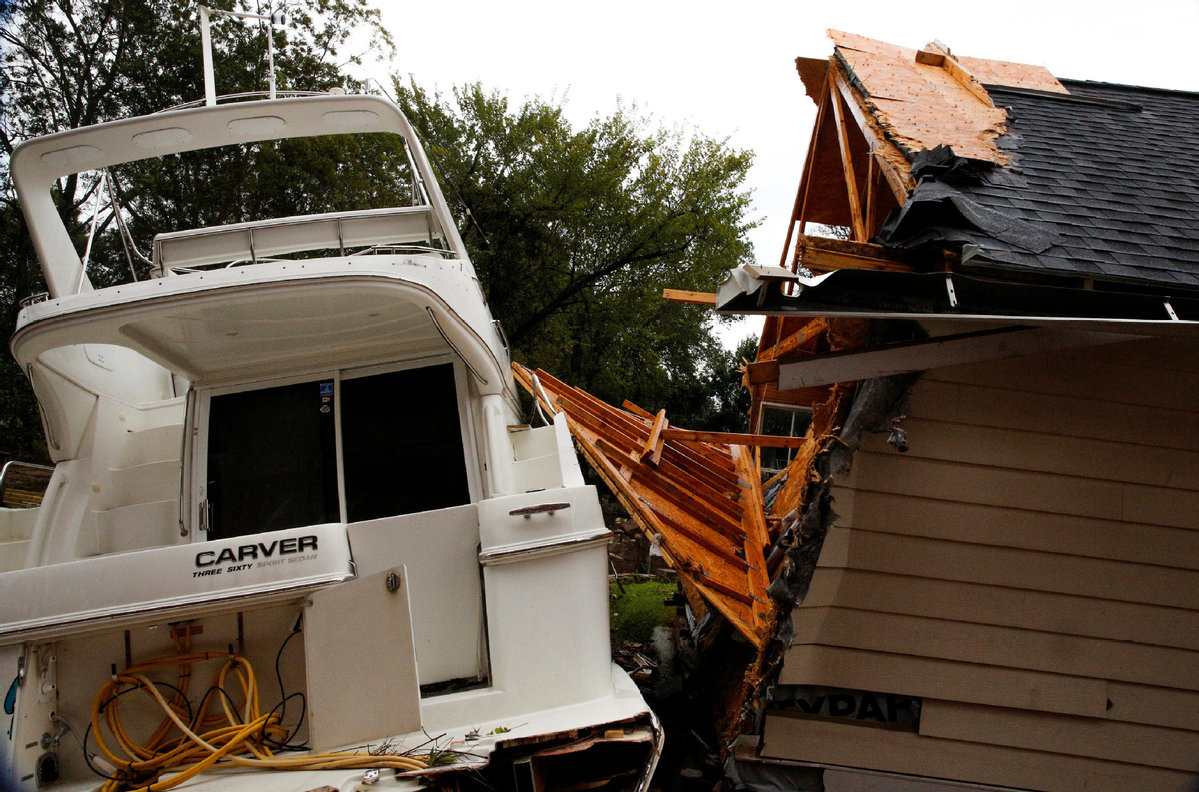Flooding fears surge as rivers rise; Wilmington cut off


US President Donald Trump said federal emergency workers, first responders and law enforcement officials were "working really hard." As the storm "begins to finally recede, they will kick into an even higher gear. Very Professional!" he declared in a tweet.
The storm's death toll climbed to at least 17 when a 3-month-old child was killed when a tree fell across a mobile home in North Carolina. Earlier, officials said three people died in separate, weather-related traffic accidents in South Carolina.
Victor Merlos was overjoyed to find a store open for business in Wilmington since he had about 20 relatives staying at his apartment, which still had power. He spent more than $500 on cereal, eggs, soft drinks and other necessities, plus beer.
"I have everything I need for my whole family," said Merlos. Nearby, a Waffle House restaurant limited breakfast customers to one biscuit and one drink, all take-out, with the price of $2 per item.
Kenneth Campbell had donned waterproof waders intending to check out his home in Lumberton, but he didn't bother when he saw the Coast Guard and murky waters in his neighborhood.
"I'm not going to waste my time. I already know," he said.
As rivers swelled, state regulators and environmental groups were monitoring the threat from gigantic hog and poultry farms located in low-lying, flood-prone areas.
The industrial-scale farms contain vast pits of animal feces and urine that can pose a significant pollution threat if they are breached or inundated by floodwaters. In past hurricanes, flooding at dozens of farms also left hundreds of thousands of dead hogs, chickens and other decomposing livestock bobbing in floodwaters.
Stream gauges across the region showed water levels rising steadily, with forecasts calling for rivers to crest Sunday and Monday at or near record levels. The Defense Department said about 13,500 military personnel had been assigned to help relief efforts.
Authorities ordered the immediate evacuation of up to 7,500 people living within a mile (1.6 kilometers) of a stretch of the Cape Fear River and the Little River, about 100 miles (160 kilometers) from the North Carolina coast. The evacuation zone included part of the city of Fayetteville, population 200,000.
John Rose owns a furniture business with stores less than a mile (1.6 kilometers) from the river. Rain-soaked furniture workers helped him quickly empty more than 1,000 mattresses from a warehouse in a low-lying strip mall.
































